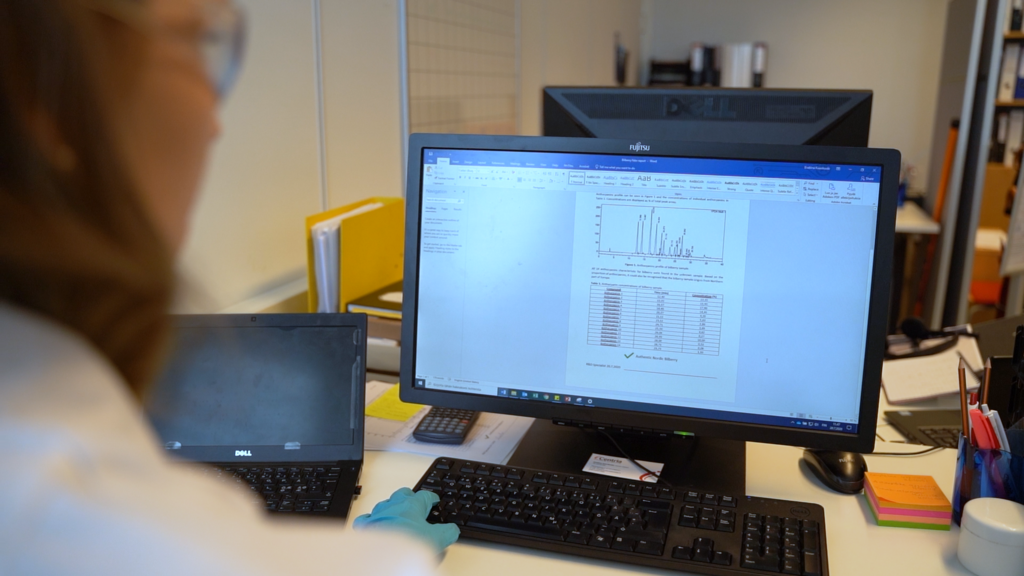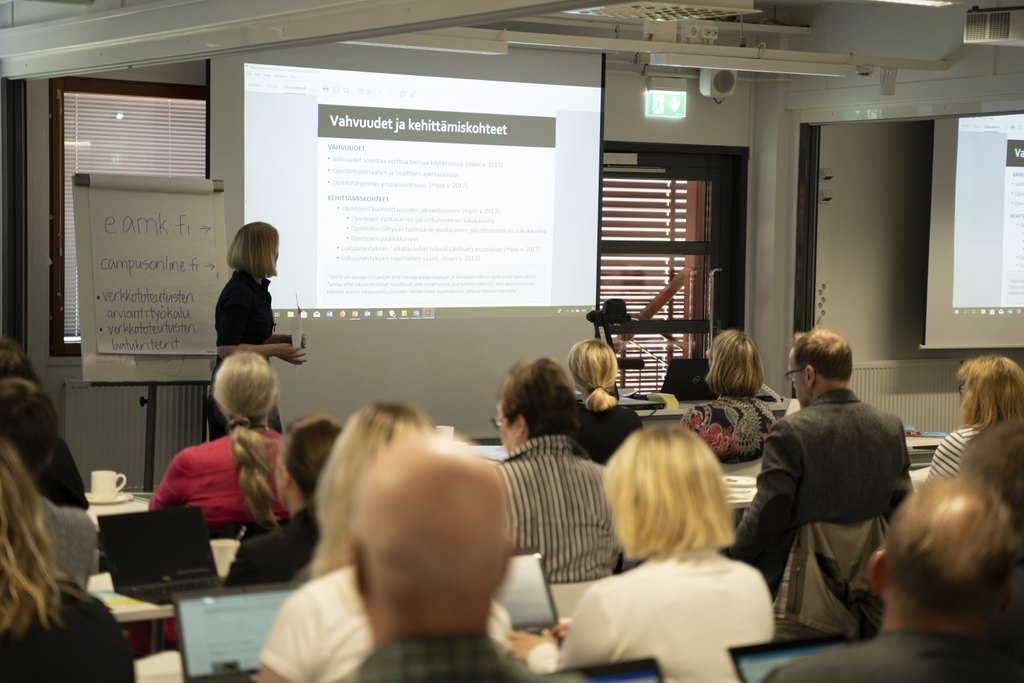Maria Hofman-Bergholm

During the last decade companies have slowly started to recognize sustainability as a non-transitory trend, but still companies mostly focus on carbon offsetting, carbon emissions and carbon neutrality. Carbon emissions have, with the help of excessive media coverage, become the symbol of the fight for the environment, leaving other issues in the shadows.
This phenomenon was named in 2021 as the “carbon tunnel vision” by Jan Konietzko, as a highly relevant observation. This indeed shapes a very relevant question. Imagine that we somehow in the future manage to achieve net-zero emissions, but still fail to safeguard the world’s biodiversity and still overlook human rights, what would this mean for the planetary health and the wellbeing of people? (Nybo Jensen 2021.)
This widespread phenomenon, the “carbon tunnel vision”, makes it possible for companies like e.g. big oil companies to brand their fossil products as “carbon neutral” through the system with carbon offsets. This is a pure kind of greenwashing that creates a curtain of mist against the need to reduce fossil fuel use dramatically to keep climate change’s effects manageable. (Achakulwisut, Calles Almeida & Arond 2022.)

The Corporate Sustainability Reporting Directive – a tool to address the “carbon tunnel vision”
To go beyond the “carbon tunnel vision” it is necessary to consider the impact of the industry on the whole society, the ecosystems and the water and air for a sustainable future to emerge, instead of only considering the carbon emissions from the industry and companies.
To make progress beyond the “carbon tunnel vision” the European Union (EU) has strengthened the rules regarding how enterprises report on sustainability, in particular the new rules concern the social and environmental information that companies must report. These new rules require all large and/or listed companies to disclose information on the impact that their activities have on both people and the environment. This is the Corporate Sustainability Reporting Directive (CSRD) that entered into force in the beginning of 2023. This means that the first companies, which had to apply to the new rules in the 2024 fiscal year, will publish their reports in 2025. This applies to a broader group of large companies and listed SMEs that now must report on their sustainability. (European Commission 2024.)
To facilitate the reporting, the EU has developed standards for what sustainability reporting should consist of. These are the European Sustainability Reporting Standards (ESRS) (European Commission 2023). In the Nordic countries we also have our own sustainability reporting standard explicit for Nordic SME’s (Nordic Accountant Federation 2024). This is a standard tailored especially for small and medium sized companies, which probably will be affected indirectly by the Corporate Sustainability Reporting Directive (CSRD), as enterprises serving as subcontractors will be asked to provide sustainability data to stakeholders or business partners. This makes sustainability reporting a necessity for some SMEs, even though it is on a voluntary basis without being legalized yet.
The Corporate Sustainability Reporting Directive will make it easier and more transparent for i.e. investors, consumers, and other stakeholders to recognize the sustainability performance of companies. In addition, there are also new EU regulations on providing a digital product passport on new consumer items produced from 2026, which must be available through a digitally readable identifier. This digital product passport (DPP) will provide the consumer with information about the product’s environmental impact, materials, origin, and recommendations on disposal. With the help of this DPP the current lack of reliable product data will be addressed, and it will be easier in the future for the consumer to make responsible, sustainable choices. Both the CSRD and the DPP offer a significant advance in sustainability and product transparency at both business and consumer level, but it will require a lot of data collection for the companies in order to succeed. (European Commission 2024; European Union 2024; Sitra 2024.)

Is there a need for business professionals to specialize in sustainability reporting?
The companies that now are required to prepare a sustainability report according to the new CSRD are obliged to provide the report as a separate section in the management report, audited by an auditor (FAR; Patentti- ja rekisterihallitus 2023). This means that great demands are placed on the auditors, who are appointed to monitor the companies’ compliance with the new regulations. For auditors to succeed in this there are new possibilities for auditors to specialize in sustainability reporting and take a Sustainability Reporting Auditor (SRA) qualification. This qualification will be needed to sign the companies’ Sustainability Report. (Kortesalmi & Lindblad 2023.)
The new rules will not only demand a lot of the auditors, they will also put high demands on the companies themselves, and entrepreneurs, to comply with the sustainability reporting regulations and standards in order to prepare a report that the auditor can audit. This is likely to increase the demand for future training, at least for certain professional categories, to cope with the new standards of sustainability reporting.

The standards produced to facilitate sustainability reporting will make it a bit easier for the companies and entrepreneurs involved, but it will still demand a lot of different data to be collected. This is also a fact regarding the DPP. This opens opportunities for e.g. data experts and system developers to niche into the field of sustainability reporting.
These new EU regulations make it obvious that in the near future new skills are needed in the business management and accountancy sector. For as well auditors as educated economists, who want to specialize, and for educational providers educating within the business area there seem to be a lot of new opportunities rising with the sustainability reporting regulations enter into force.
References
Achakulwisut, P., Calles Almeida, P. & Arond, E. 2022. It’s time to move beyond “carbon tunnel vision”. SEI Perspectives. Available at: https://www.sei.org/perspectives/move-beyond-carbon-tunnel-vision/. Accessed 7 November 2024.
European Commission. 2024. Corporate sustainability reporting. Available at: https://finance.ec.europa.eu/capital-markets-union-and-financial-markets/company-reporting-and-auditing/company-reporting/corporate-sustainability-reporting_en. Accessed 7 November 2024.
European Commission. 2023. The Commission adopts the European Sustainability Reporting Standards. Available at: https://finance.ec.europa.eu/news/commission-adopts-european-sustainability-reporting-standards-2023-07-31_en. Accessed 7 November 2024.
European Union. 2024. EU’s Digital Product Passport: Advancing transparency and sustainability. Available at: https://data.europa.eu/en/news-events/news/eus-digital-product-passport-advancing-transparency-and-sustainability. Accessed 7 November 2024
FAR. Frivillig eller lagstadgad hållbarhetsrapportering? Available at: https://www.far.se/kunskap/hallbarhet/frivillig-eller-lagstadgad-hallbarhetsrapportering/?srsltid=AfmBOorEeSPrCAmaDTOBgP3ZwqRTkm6FyXI0Eeih6eW0J2xjJlkjDrKd#lag. Accessed 7 November 2024.
Kortesalmi, H. & Lindblad, U. 2023. Kestävyysraportointi ja tilintarkastajan uusi osaaminen. eSignals. Available at: https://esignals.fi/kategoria/jatkuva-oppiminen-kategoriat/kestavyysraportointi-ja-tilintarkastajan-uusi-osaaminen/#bf96c7aa. Accessed 7 November 2024.
Nordic Accountant Federation. 2024. Nordic Sustainability Reporting Standard. Available at: https://nsrs.eu/. Accessed 7 November 2024.
Nybo Jensen, T. 2021. Avoiding carbon tunnel vision: action on climate change needs an inter-connected response. Medium. Available at: https://globalreportinginitiative.medium.com/avoiding-carbon-tunnel-vision-action-on-climate-change-needs-an-inter-connected-response-98115b29b51d. Accessed 7 November 2024.
Patentti- ja rekisterihallitus. 2023. Kestävyysraportointitarkastajien ja kestävyystarkastusyhteisöjen rekisteröinti alkaa vuodenvaihteessa. Available at: https://www.prh.fi/fi/tietoa_prhsta/ajankohtaista/uutiskirjeet/prhn_uutiskirje/prhn-uutiskirje-82023/kestavyysraportointitarkastajien-ja-kestavyystarkastusyhteisojen-rekisterointi-alkaa-vuoden-vaihteessa.html. Accessed 7 November 2024.
Sitra. 2024. Digital Product Passports. Available at: https://www.sitra.fi/en/projects/digital-product-passports/. Accessed 7 November 2024.
Maria Hofman-Bergholm
RDI-expert
Centria UAS
Tel. +358 40 356 3305

